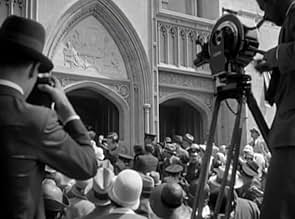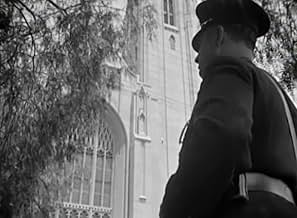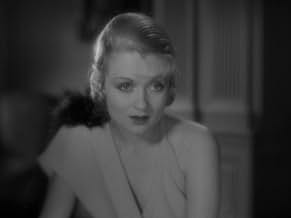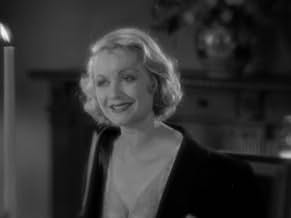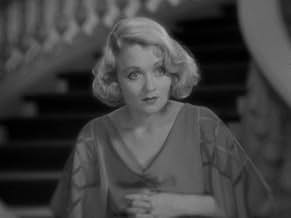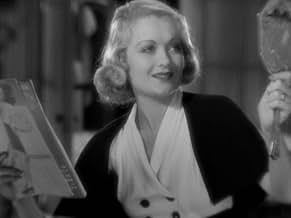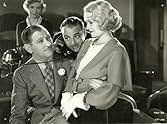IMDb-BEWERTUNG
7,0/10
2854
IHRE BEWERTUNG
Füge eine Handlung in deiner Sprache hinzuThe career of a waitress takes off when she meets an amiable drunken Hollywood director.The career of a waitress takes off when she meets an amiable drunken Hollywood director.The career of a waitress takes off when she meets an amiable drunken Hollywood director.
- Für 1 Oscar nominiert
- 3 Gewinne & 1 Nominierung insgesamt
George Reed
- Undetermined Secondary Role
- (Gelöschte Szenen)
Alice Adair
- Undetermined Secondary Role
- (Nicht genannt)
Eddie 'Rochester' Anderson
- James - Max's Butler
- (Nicht genannt)
Sam Armstrong
- Undetermined Secondary Role
- (Nicht genannt)
Zeena Baer
- Secretary to Julius Saxe
- (Nicht genannt)
King Baggot
- Department Head
- (Nicht genannt)
Gerald Barry
- John Reed - an Actor
- (Nicht genannt)
Floyd Bell
- Undetermined Secondary Role
- (Nicht genannt)
Veda Buckland
- Nana - Jackie's Nursemaid
- (Nicht genannt)
Nicholas Caruso
- Chef at Brown Derby
- (Nicht genannt)
Lita Chevret
- Actress Filming on Movie Set
- (Nicht genannt)
Empfohlene Bewertungen
What that lady needed was a good script and a fine director. She had both in "Our Betters." And she had it here. And this one will break your heart.
The on-the-set ambiance is very plausible. Lowell Sherman is excellent as the tippling director who discovers waitress Bennett and becomes a heavier drinker. Gregory Ratoff is superb as the initially brusque but increasingly sympathetic producer Saxe.
Conusance Bennett is likable as the ambitious waitress. She gets us to smile as she starts out as a crummy actress but works hard at it. And she is directed to a superb performance when things for Sherman, her, and her husband Neil Hamilton get tough.
The on-the-set ambiance is very plausible. Lowell Sherman is excellent as the tippling director who discovers waitress Bennett and becomes a heavier drinker. Gregory Ratoff is superb as the initially brusque but increasingly sympathetic producer Saxe.
Conusance Bennett is likable as the ambitious waitress. She gets us to smile as she starts out as a crummy actress but works hard at it. And she is directed to a superb performance when things for Sherman, her, and her husband Neil Hamilton get tough.
One of George Cukor's better films, featuring Lowell Sherman, as an alcoholic director, Gregory Ratoff as a Sam Goldwyn like producer, and Constance Bennett playing the starstruck waitress at the Brown Derby. The film also includes Eddie "Rochester" Anderson as Sherman's sly butler. An early RKO film, it shows the working of the studio, somewhat satirically but lovingly. Also, a world premiere at Grauman's Chinese Theater. It should be better known .
Pre-Code insider's look at Hollywood, a precursor to all those STAR IS BORN films.
Constance Bennett is a waitress at Hollywood's famed Brown Derby restaurant specifically for the chance of meeting the right contact to help her break into films. In walks Lowell Sherman, a tipsy but famous director. They take a shine to each other and he wakes up the next morning to find her asleep on his living room couch. He invites her to test for a small part in a film, but she's terrible.
She works all night on her little scene and finally gets it right. Of course she makes a hit and becomes a big star. She's never romantically involved with Sherman, who's more interested in the bottle. She has everything she ever wanted and marries a stuffy rich boy (Neil Hamilton) who never fits in.
Eventually Bennett loses the husband and also loses Sherman as his career slips away because of his drinking. The years go by. One night she gets a call to come get Sherman out of jail where he's been locked up for be drunk and for skipping out on a bar bill. She takes him home and cleans him up, but it's too late.
Hard-hitting story stunned a lot of viewers who wanted to believe that the lives of the Hollywood stars was a bed of roses. Bennett and Sherman are superb. Hamilton is fine as the rich husband. Also good are Gregory Ratoff as the producer and Louise Beavers as the devoted maid.
There were insider Hollywood stories before this. Marion Davies' comedy SHOW PEOPLE showed how fame can go to an actress' head. The following STAR IS BORN films borrowed heavily from this one but the heroines in these (Janet Gaynor, Judy Garland, Barbra Streisand, and the 2018 version) were all married to the tragic figure.
Perhaps a bigger studio than RKO could have secured the Oscar nominations Lowell Sherman and Constance Bennett deserved for this film.
Constance Bennett is a waitress at Hollywood's famed Brown Derby restaurant specifically for the chance of meeting the right contact to help her break into films. In walks Lowell Sherman, a tipsy but famous director. They take a shine to each other and he wakes up the next morning to find her asleep on his living room couch. He invites her to test for a small part in a film, but she's terrible.
She works all night on her little scene and finally gets it right. Of course she makes a hit and becomes a big star. She's never romantically involved with Sherman, who's more interested in the bottle. She has everything she ever wanted and marries a stuffy rich boy (Neil Hamilton) who never fits in.
Eventually Bennett loses the husband and also loses Sherman as his career slips away because of his drinking. The years go by. One night she gets a call to come get Sherman out of jail where he's been locked up for be drunk and for skipping out on a bar bill. She takes him home and cleans him up, but it's too late.
Hard-hitting story stunned a lot of viewers who wanted to believe that the lives of the Hollywood stars was a bed of roses. Bennett and Sherman are superb. Hamilton is fine as the rich husband. Also good are Gregory Ratoff as the producer and Louise Beavers as the devoted maid.
There were insider Hollywood stories before this. Marion Davies' comedy SHOW PEOPLE showed how fame can go to an actress' head. The following STAR IS BORN films borrowed heavily from this one but the heroines in these (Janet Gaynor, Judy Garland, Barbra Streisand, and the 2018 version) were all married to the tragic figure.
Perhaps a bigger studio than RKO could have secured the Oscar nominations Lowell Sherman and Constance Bennett deserved for this film.
It's fun to compare "What Price Hollywood," made in 1932, to the more familiar 1937 version of "A Star is Born" (as well as its two later remakes). An important historic event intervened between the two: the Hays Code became rigidly enforced in 1934. The 1932 version is much spicier. Mary, the unknown knockout in in the 1932 version, is a saucy waitress at the legendary Brown Derby restaurant trying to catch the eye of a movie big shot. She's pretty sophisticated and, you believe, would happily do whatever is required to land an acting job. She readily allows herself to be picked up and taken to a premiere by a famous (but fading) director, which launches her great career. In the 1937 version, Esther, the ingenue, is straight off the farm and comes to Hollywood without a clue about the movie biz. She's a goody-two-shoes who would be shocked about what it usually takes to break into the biz. She catches the eye of a famous (but fading and highly alcoholic) actor when she waitresses at a party.
There is one major plot difference: in the 1932 version, Mary marries a rich polo playing socialite who divorces her (while she's pregnant) because he is fed up with movie people. This is highly realistic--movie stars had terrible marital problems. In the 1937 version, Esther marries the actor who was her mentor and is sucked into his hopeless downward spiral. Divorce is a perfectly acceptable solution to marital problems in 1932 but, under the constraints of the Code, was out of the question in 1937.
Both films are well worth seeing. They're loaded with insights about Hollywood and filmmaking (both the creative and the business end), the rapacious movie press, and the fans--an insatiable monster that devours the object of its affection. The declining fortunes of the director (in "What Price Hollywood") and the actor (in "A Star is Born") are quite fascinating. But of the two--the 1932 version is a lot more fun.
There is one major plot difference: in the 1932 version, Mary marries a rich polo playing socialite who divorces her (while she's pregnant) because he is fed up with movie people. This is highly realistic--movie stars had terrible marital problems. In the 1937 version, Esther marries the actor who was her mentor and is sucked into his hopeless downward spiral. Divorce is a perfectly acceptable solution to marital problems in 1932 but, under the constraints of the Code, was out of the question in 1937.
Both films are well worth seeing. They're loaded with insights about Hollywood and filmmaking (both the creative and the business end), the rapacious movie press, and the fans--an insatiable monster that devours the object of its affection. The declining fortunes of the director (in "What Price Hollywood") and the actor (in "A Star is Born") are quite fascinating. But of the two--the 1932 version is a lot more fun.
"What Price Hollywood?" is one of my favorite films of the 1930s. With loads of drama, glamour to spare, and some romance too, this movie is one of the best behind-the-scenes looks at the old Hollywood studio system that was ever made. Constance Bennett, looking her radiant best, plays the lead role with finesse. Lowell Sherman also turns in a powerful performance as a washed-up director. This movie was the basis for "A Star is Born." All in all, one great film.
Wusstest du schon
- WissenswertesThis film bears such a striking resemblance to Ein Stern geht auf (1937) that it is often considered "the original version" of that often remade classic. In fact, David O. Selznick, who produced both this film and Star is Born, was threatened with a lawsuit by this film's writers, claiming plagiarism.
- PatzerWhen the screen shows a newspaper gossip column, part of an item relating a joke about a Jewish boy and a bird can be seen. Several months later, another gossip column shows the identical item.
- Crazy CreditsThere is a "by" credit to Gene Fowler and Rowland Brown after the title shows, but there is also a "screenplay by" credit to Jane Murfin and Ben Markson, without leaving any clear explanation or context as to what "by" actually means. But the reality was that Fowler and Brown wrote the real screenplay, with Murfin and Markson providing the continuity.
- VerbindungenFeatured in David O. Selznick: 'Your New Producer' (1935)
- SoundtracksThree Little Words
(1930) (uncredited)
Music by Harry Ruby
Part of a medley played during the opening credits
Top-Auswahl
Melde dich zum Bewerten an und greife auf die Watchlist für personalisierte Empfehlungen zu.
- How long is What Price Hollywood??Powered by Alexa
Details
- Erscheinungsdatum
- Herkunftsland
- Sprachen
- Auch bekannt als
- Hollywood Madness
- Drehorte
- Produktionsfirma
- Weitere beteiligte Unternehmen bei IMDbPro anzeigen
Box Office
- Budget
- 411.676 $ (geschätzt)
- Laufzeit
- 1 Std. 28 Min.(88 min)
- Farbe
- Seitenverhältnis
- 1.37 : 1
Zu dieser Seite beitragen
Bearbeitung vorschlagen oder fehlenden Inhalt hinzufügen

